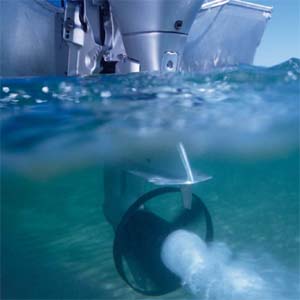Why Does Propeller Pitch Matter?
 Yesterday we discussed the virtues of purchasing the proper propeller for one’s small boat. I received some correspondence from some longtime readers requesting specifics. The most common questions had to do with the “pitch” of the propeller and what that might mean for engine efficiency. So, thanks to popular demand, let’s take a closer look at that undervalued part that cuts through the water with authority.
Yesterday we discussed the virtues of purchasing the proper propeller for one’s small boat. I received some correspondence from some longtime readers requesting specifics. The most common questions had to do with the “pitch” of the propeller and what that might mean for engine efficiency. So, thanks to popular demand, let’s take a closer look at that undervalued part that cuts through the water with authority.
Pitch refers to the distance a propeller moves forward with each rotation. This measurement is extremely important for boaters who want to achieve maximum RPM at full throttle with a normal load inside the boat. If a boat is overpropped, or has too much pitch, it will be slow to get on plane and it won’t respond immediately to the throttle. In other words, such a boat will act as a sluggard until a more suitable propeller is attached.
If the boat is underpropped, or doesn’t have enough pitch, it will effortlessly exceed the manufacturer’s recommended RPM, and it will hop along in the water. Find a happy medium where the given pitch of a propeller corresponds to recommended RPM, and you’ll be well on your way to achieving engine efficiency and saving a pretty penny. Try asking a boat dealer if you can water-test a few different props before buying. Don’t let your latest fixation on propellers distract you from mandatory maintenance duties, however. Some fresh 2 cycle oil always does a motor good.

